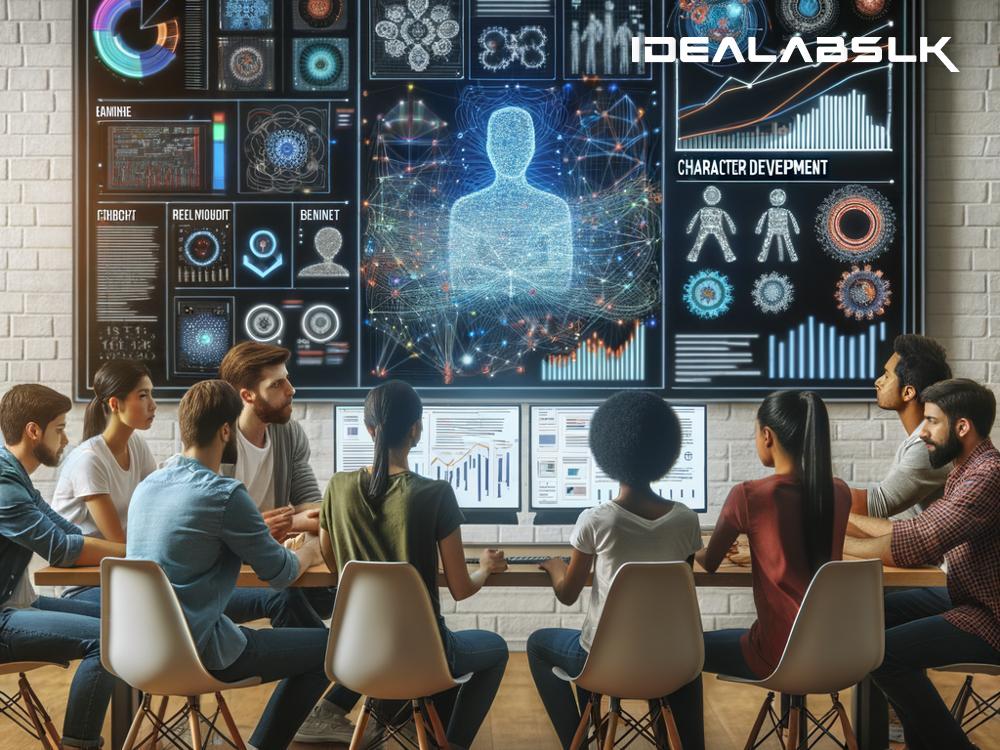How AI Will Help Developers Create Better Storylines in 2025
In the world of storytelling within games, movies, and novels, crafting the perfect narrative can be quite the challenge. Creative minds strive day and night to develop plots that enthrall and entertain audiences, but the process is neither easy nor quick. However, the horizon of storytelling is about to witness a revolutionary change, thanks to the advancements in Artificial Intelligence (AI). Let's explore how AI is expected to empower developers to create more compelling storylines by the year 2025.
Breaking Down Complex Narratives
First off, one of the most exciting aspects of AI in creative writing is its ability to analyze and understand complex narrative structures. Imagine having a tool that could sift through thousands of story arcs, character developments, and plot twists, then provide insights into what might make your story more engaging. By 2025, AI will be that tool, offering developers a way to see their storylines from perspectives they hadn't considered, identifying potential plot holes or areas for deeper emotional impact.
Endless Inspirations at Your Fingertips
Coming up with fresh and unique ideas is often one of the most challenging aspects of storytelling. But what if you had an assistant that could generate endless story ideas or variations of your current plotline in seconds? AI will bring this possibility to life. Through machine learning algorithms, AI tools will learn from a vast array of existing narratives across cultures and genres, offering creators an infinite pool of inspirations and suggestions tailored to their specific needs. This doesn't mean AI will replace human creativity; rather, it will enhance it by breaking through creative blocks and offering new angles.
Personalized Storytelling
AI is bringing personalization to nearly every industry, and storytelling is no exception. Developers can utilize AI to craft narratives that adapt to the audience's preferences or even their emotional responses. Imagine a video game that changes its storyline based on how the player reacts to certain events or a novel that offers alternate plot paths suited to the reader's tastes. By 2025, AI will help developers achieve this level of personalization, creating more immersive and emotionally resonant experiences for audiences.
Collaboration Between AI and Creativity
The beauty of AI in storytelling lies in the collaboration between human intuition and AI's computational power. AI can offer suggestions, predict outcomes, and help organize complex storylines, but it's the human touch that brings the heart and soul to a narrative. Developers will learn to work alongside AI, using it as a tool to enhance their creative visions. This partnership will streamline the storytelling process, allowing creators to focus on the essence of their narrative while AI handles the analysis and logistics.
Bridging the Gap Between Vision and Execution
Many creators have grand visions for their stories but struggle with executing them effectively. AI's capabilities in data analysis, pattern recognition, and predictive modeling will help bridge this gap. By 2025, developers will have access to AI tools that can take a storyline idea and map out the most effective way to structure it, suggest character development arcs, and even predict audience reactions to different elements of the story. This will not only save valuable time but also increase the likelihood of a story resonating with its intended audience.
Overcoming Language Barriers
The global appeal of a story often hinges on how well it's adapted and understood in different cultures. AI's advancements in natural language processing and translation will empower developers to create storylines that are not only linguistically accurate but culturally resonant across different regions. By 2025, AI-driven tools will help ensure that the essence of a story isn't lost in translation, making universal themes more accessible and relatable to diverse audiences.
Conclusion
The integration of AI into the creative process of developing storylines isn't about replacing human creativity; it's about augmenting it. By 2025, AI will serve as a powerful ally for creators, offering them unparalleled insights, inspirations, and efficiencies in crafting compelling narratives. By embracing this technology, developers will not only elevate their storytelling capabilities but also create experiences that are more engaging, personalized, and impactful for audiences worldwide. The future of storytelling is bright, and it's woven with the threads of human imagination and artificial intelligence.

